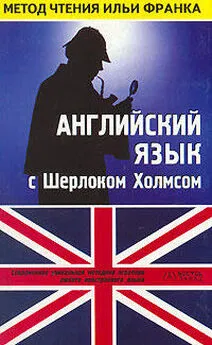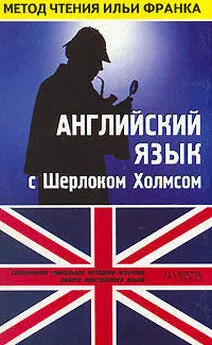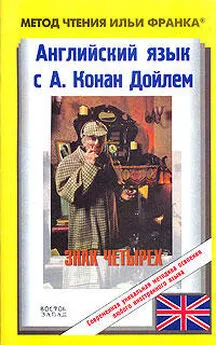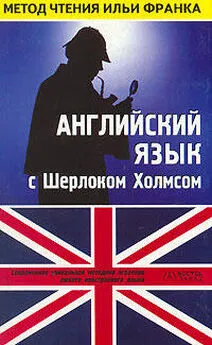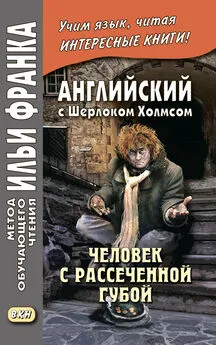Arthur Conan Doyle - The Great Boer War
- Название:The Great Boer War
- Автор:
- Жанр:
- Издательство:Array Иностранный паблик
- Год:неизвестен
- ISBN:нет данных
- Рейтинг:
- Избранное:Добавить в избранное
-
Отзывы:
-
Ваша оценка:
Arthur Conan Doyle - The Great Boer War краткое содержание
The Great Boer War - читать онлайн бесплатно ознакомительный отрывок
Интервал:
Закладка:
White must have been now uneasy for his position, and it had become apparent that his only course was to fall back and concentrate upon the town. His left flank was up in the air, and the sound of distant firing, wafted over five miles of broken country, was the only message which arrived from them. His right had been pushed back, and, most dangerous of all, his centre had ceased to exist, for only the 2nd Rifle Brigade remained there. What would happen if the enemy burst rudely through and pushed straight for the town? It was the more possible, as the Boer artillery had now proved itself to be far heavier than ours. That terrible 96-pounder, serenely safe and out of range, was plumping its great projectiles into the masses of retiring troops. The men had had little sleep and little food, and this unanswerable fire was an ordeal for a force which is retreating. A retirement may very rapidly become a rout under such circumstances. It was with some misgivings that the officers saw their men quicken their pace and glance back over their shoulders at the whine and screech of the shell. They were still some miles from home, and the plain was open. What could be done to give them some relief?
And at that very moment there came the opportune and unexpected answer. That plume of engine smoke which the watcher had observed in the morning had drawn nearer and nearer, as the heavy train came puffing and creaking up the steep inclines. Then, almost before it had drawn up at the Ladysmith siding, there had sprung from it a crowd of merry bearded fellows, with ready hands and strange sea cries, pulling and hauling, with rope and purchase to get out the long slim guns which they had lashed on the trucks. Singular carriages were there, specially invented by Captain Percy Scott, and labouring and straining, they worked furiously to get the 12-pounder quick-firers into action. Then at last it was done, and the long tubes swept upwards to the angle at which they might hope to reach that monster on the hill at the horizon. Two of them craned their long inquisitive necks up and exchanged repartees with the big Creusot. And so it was that the weary and dispirited British troops heard a crash which was louder and sharper than that of their field guns, and saw far away upon the distant hill a great spurt of smoke and flame to show where the shell had struck. Another and another and another – and then they were troubled no more. Captain Hedworth Lambton and his men had saved the situation. The masterful gun had met its own master and sank into silence, while the somewhat bedraggled field force came trailing back into Ladysmith, leaving three hundred of their number behind them. It was a high price to pay, but other misfortunes were in store for us which made the retirement of the morning seem insignificant.
In the meantime we may follow the unhappy fortunes of the small column which had, as already described, been sent out by Sir George White in order, if possible, to prevent the junction of the two Boer armies, and at the same time to threaten the right wing of the main force, which was advancing from the direction of Dundee, Sir George White throughout the campaign consistently displayed one quality which is a charming one in an individual, but may be dangerous in a commander. He was a confirmed optimist. Perhaps his heart might have failed him in the dark days to come had he not been so. But whether one considers the non-destruction of the Newcastle Railway, the acquiescence in the occupation of Dundee, the retention of the non combatants in Ladysmith until it was too late to get rid of their useless mouths, or the failure to make any serious preparations for the defence of the town until his troops were beaten back into it, we see always the same evidence of a man who habitually hopes that all will go well, and is in consequence remiss in making preparations for their going ill. But unhappily in every one of these instances they did go ill, though the slowness of the Boers enabled us, both at Dundee and at Ladysmith, to escape what might have been disaster.
Sir George White has so nobly and frankly taken upon himself the blame of Nicholson's Nek that an impartial historian must rather regard his self-condemnation as having been excessive. The immediate causes of the failure were undoubtedly the results of pure ill-fortune, and depended on things outside his control. But it is evident that the strategic plan which would justify the presence of this column at Nicholson's Nek was based upon the supposition that the main army won their action at Lombard's Kop. In that case White might swing round his right and pin the Boers between himself and Nicholson's Nek. In any case he could then re-unite with his isolated wing. But if he should lose his battle – what then? What was to become of this detachment five miles up in the air? How was it to be extricated? The gallant Irishman seems to have waved aside the very idea of defeat. An assurance was, it is reported, given to the leaders of the column that by eleven o'clock next morning they would be relieved. So they would if White had won his action. But -
The force chosen to operate independently consisted of four and a half companies of the Gloucester regiment, six companies of the Royal Irish Fusiliers, and No. 10 Mountain Battery of six seven-pounder screw-guns. They were both old soldier regiments from India, and the Fusiliers had shown only ten days before at Talana Hill the stuff of which they were made. Colonel Carleton, of the Fusiliers, to whose exertions much of the success of the retreat from Dundee was due, commanded the column, with Major Adye as staff officer. On the night of Sunday, October 29th, they tramped out of Ladysmith, a thousand men, none better in the army. Little they thought, as they exchanged a jest or two with the outlying pickets, that they were seeing the last of their own armed countrymen for many a weary month.
The road was irregular and the night was moonless. On either side the black loom of the hills bulked vaguely through the darkness. The column tramped stolidly along, the Fusiliers in front, the guns and Gloucesters behind. Several times a short halt was called to make sure of the bearings. At last, in the black cold hours which come between midnight and morning, the column swung to the left out of the road. In front of them, hardly visible, stretched a long black kopje. It was the very Nicholson's Nek which they had come to occupy. Carleton and Adye must have heaved a sigh of relief as they realised that they had actually struck it. The force was but two hundred yards from the position, and all had gone without a hitch. And yet in those two hundred yards there came an incident which decided the fate both of their enterprise and of themselves.
Out of the darkness there blundered and rattled five horsemen, their horses galloping, the loose stones flying around them. In the dim light they were gone as soon as seen. Whence coming, whither going, no one knows, nor is it certain whether it was design or ignorance or panic which sent them riding so wildly through the darkness. Somebody fired. A sergeant of the Fusiliers took the bullet through his hand. Some one else shouted to fix bayonets. The mules which carried the spare ammunition kicked and reared. There was no question of treachery, for they were led by our own men, but to hold two frightened mules, one with either hand, is a feat for a Hercules. They lashed and tossed and bucked themselves loose, and an instant afterwards were flying helter skelter through the column. Nearly all the mules caught the panic. In vain the men held on to their heads. In the mad rush they were galloped over and knocked down by the torrent of frightened creatures. In the gloom of that early hour the men must have thought that they were charged by cavalry. The column was dashed out of all military order as effectively as if a regiment of dragoons had ridden over them. When the cyclone had passed, and the men had with many a muttered curse gathered themselves into their ranks once more, they realised how grave was the misfortune which had befallen them. There, where those mad hoofs still rattled in the distance, were their spare cartridges, their shells, and their cannon. A mountain gun is not drawn upon wheels, but is carried in adjustable parts upon mule-back. A wheel had gone south, a trail east, a chase west. Some of the cartridges were strewn upon the road. Most were on their way back to Ladysmith. There was nothing for it but to face this new situation and to determine what should be done.
It has been often and naturally asked, why did not Colonel Carleton make his way back at once upon the loss of his guns and ammunition, while it was still dark? One or two considerations are evident. In the first place, it is natural to a good soldier to endeavour to retrieve a situation rather than to abandon his enterprise. His prudence, did he not do so, might become the subject of public commendation, but might also provoke some private comment. A soldier's training is to take chances, and to do the best he can with the material at his disposal. Again, Colonel Carleton and Major Adye knew the general plan of the battle which would be raging within a very few hours, and they quite understood that by withdrawing they would expose General White's left flank to attack from the forces (consisting, as we know now, of the Orange Freestaters and of the Johannesburg Police) who were coming from the north and west. He hoped to be relieved by eleven, and he believed that, come what might, he could hold out until then. These are the most obvious of the considerations which induced Colonel Carleton to determine to carry out so far as he could the programme which had been laid down for him and his command. He marched up the hill and occupied the position.
His heart, however, must have sunk when he examined it. It was very large – too large to be effectively occupied by the force which he commanded. The length was about a mile and the breadth four hundred yards. Shaped roughly like the sole of a boot, it was only the heel end which he could hope to hold. Other hills all round offered cover for Boer riflemen. Nothing daunted, however, he set his men to work at once building sangars with the loose stones. With the full dawn and the first snapping of Boer Mausers from the hills around they had thrown up some sort of rude defences which they might hope to hold until help should come.
But how could help come when there was no means by which they could let White know the plight in which they found themselves? They had brought a heliograph with them, but it was on the back of one of those accursed mules. The Boers were thick around them, and they could not send a messenger. An attempt was made to convert a polished biscuit tin into a heliograph, but with poor success. A Kaffir was dispatched with promises of a heavy bribe, but he passed out of history. And there in the clear cold morning air the balloon hung to the south of them where the first distant thunder of White's guns was beginning to sound. If only they could attract the attention of that balloon! Vainly they wagged flags at it. Serene and unresponsive it brooded over the distant battle.
And now the Boers were thickening round them on every side. Christian de Wet, a name soon to be a household word, marshaled the Boer attack, which was soon strengthened by the arrival of Van Dam and his Police. At five o'clock the fire began, at six it was warm, at seven warmer still. Two companies of the Gloucesters lined a sangar on the tread of the sole, to prevent any one getting too near to the heel. A fresh detachment of Boers, firing from a range of nearly one thousand yards, took this defence in the rear. Bullets fell among the men, and smacked up against the stone breastwork. The two companies were withdrawn, and lost heavily in the open as they crossed it. An incessant rattle and crackle of rifle fire came from all round, drawing very slowly but steadily nearer. Now and then the whisk of a dark figure from one boulder to another was all that ever was seen of the attackers. The British fired slowly and steadily, for every cartridge counted, but the cover of the Boers was so cleverly taken that it was seldom that there was much to aim at. 'All you could ever see,' says one who was present, 'were the barrels of the rifles.' There was time for thought in that long morning, and to some of the men it may have occurred what preparation for such fighting had they ever had in the mechanical exercises of the parade ground, or the shooting of an annual bagful of cartridges at exposed targets at a measured range. It is the warfare of Nicholson's Nek, not that of Laffan's Plain, which has to be learned in the future.
Читать дальшеИнтервал:
Закладка:


